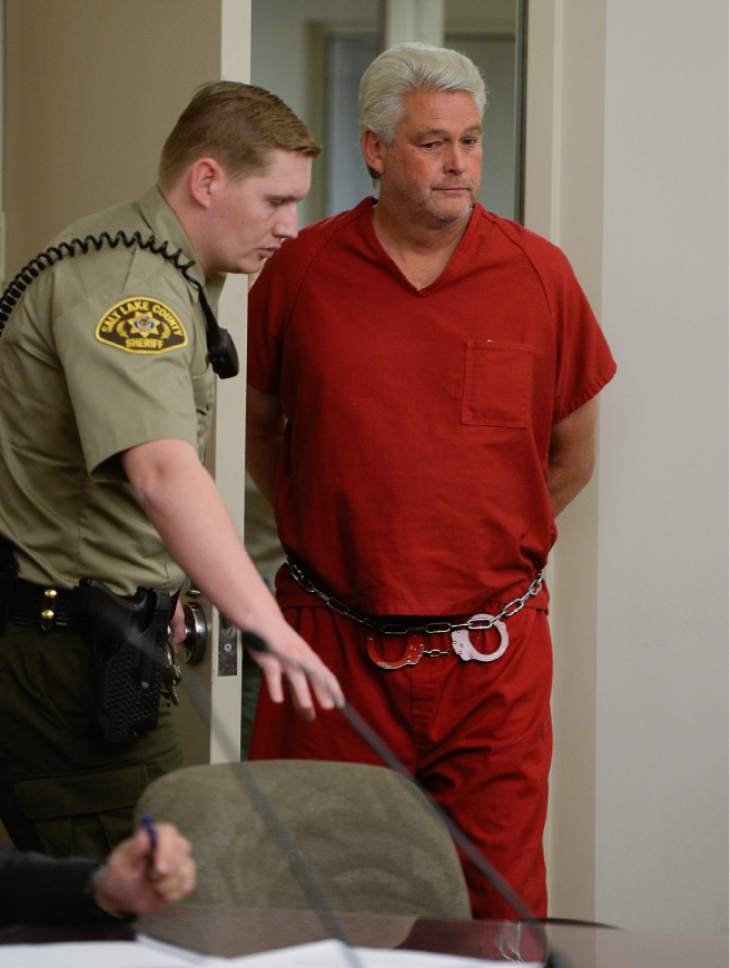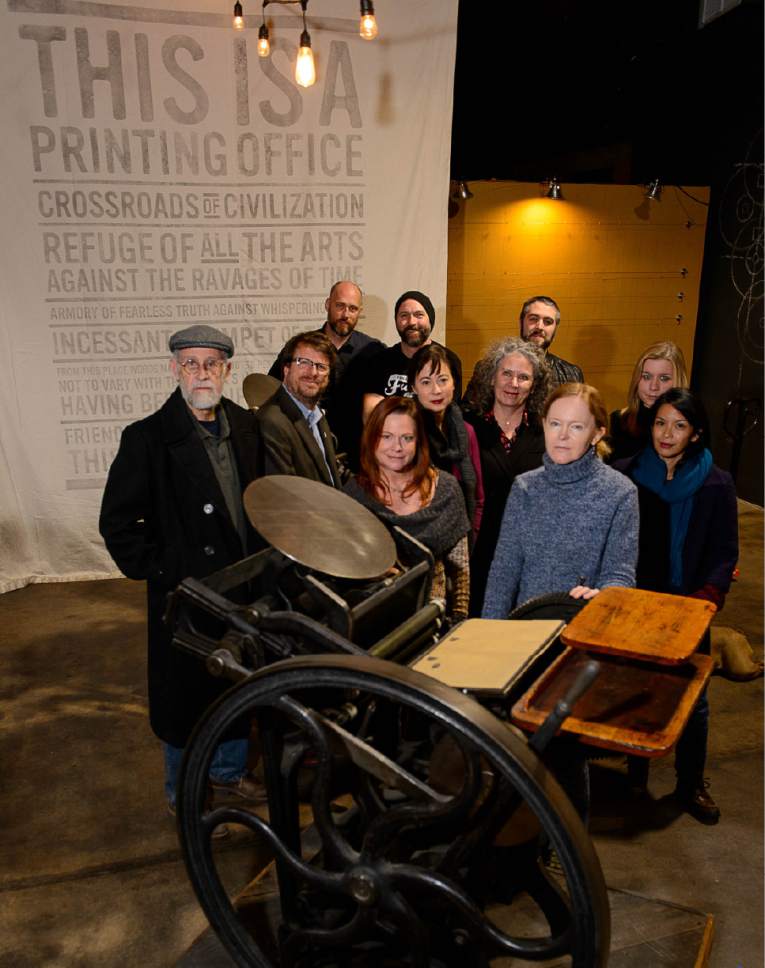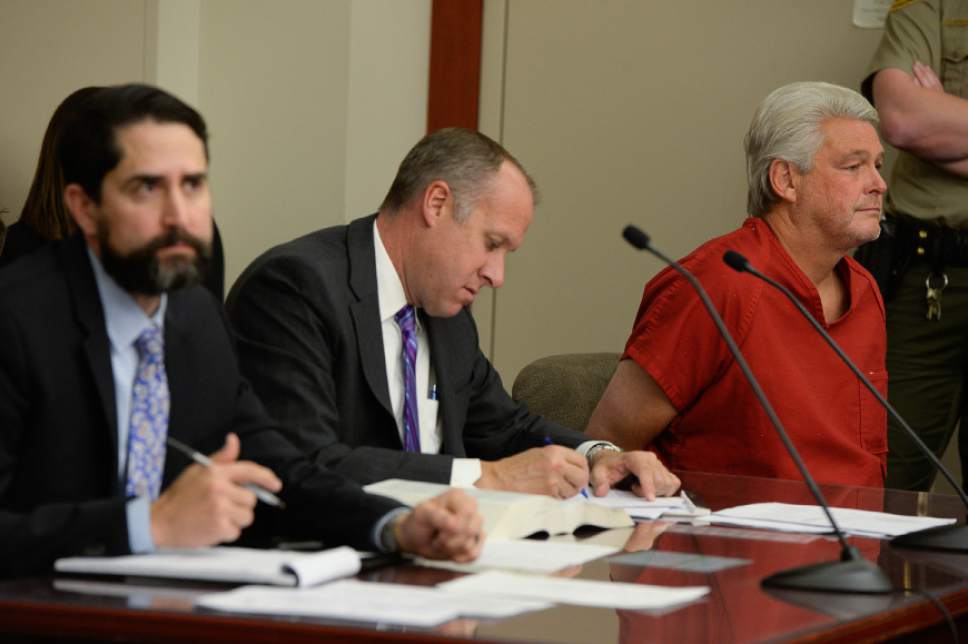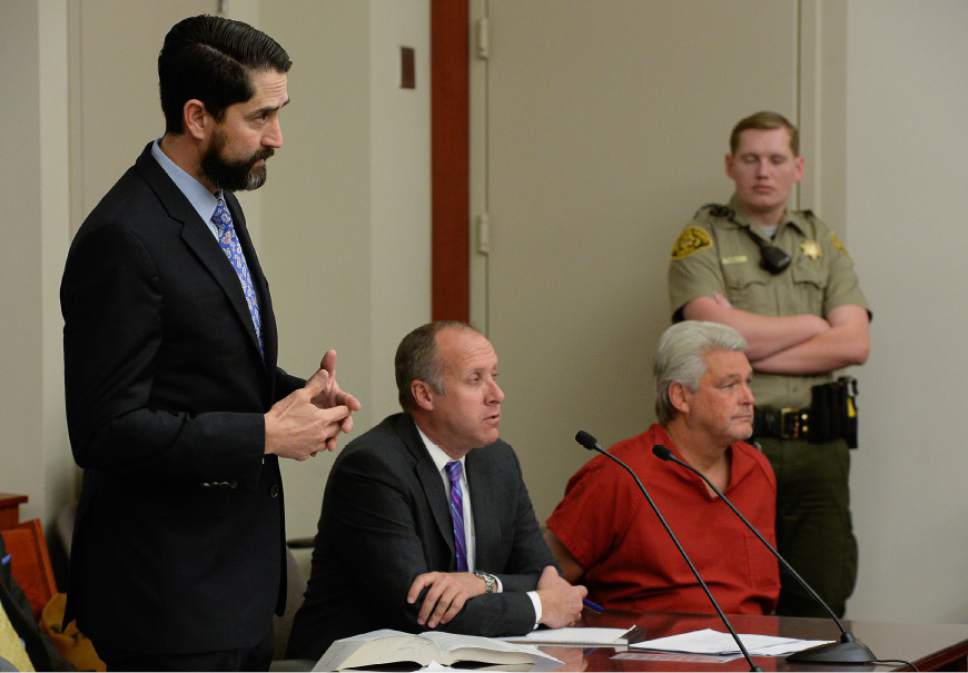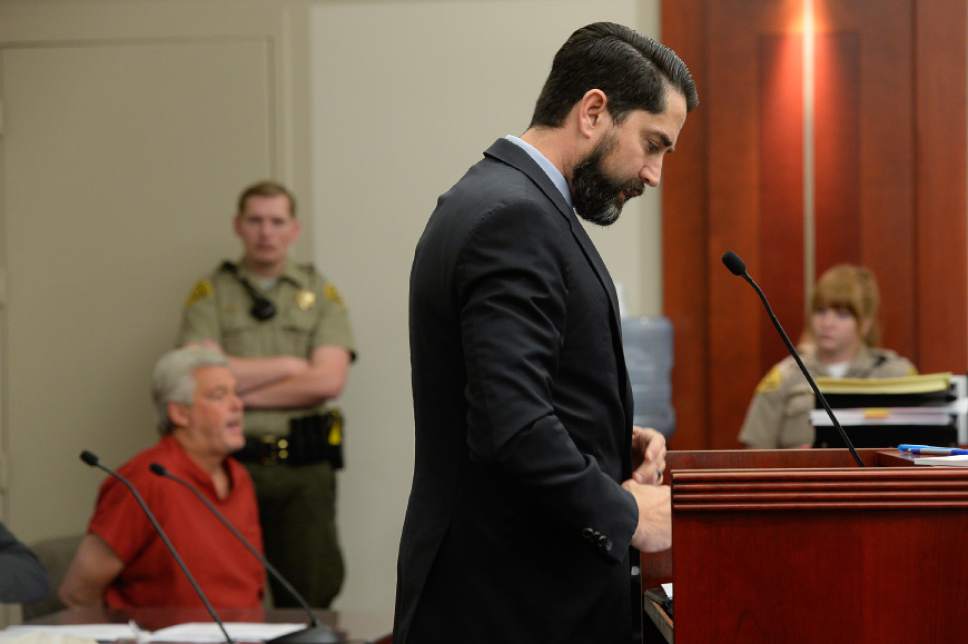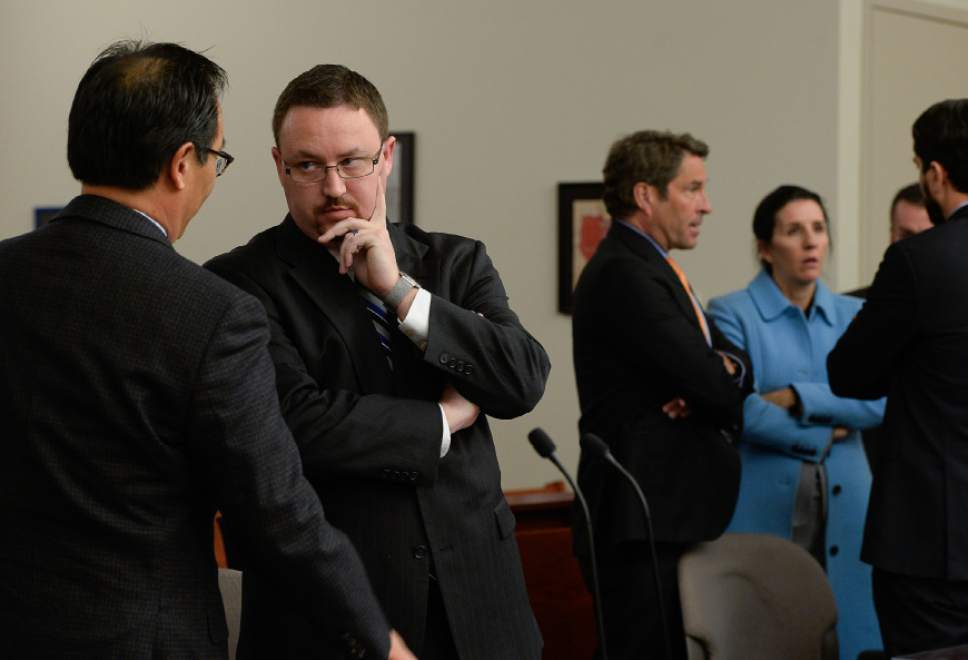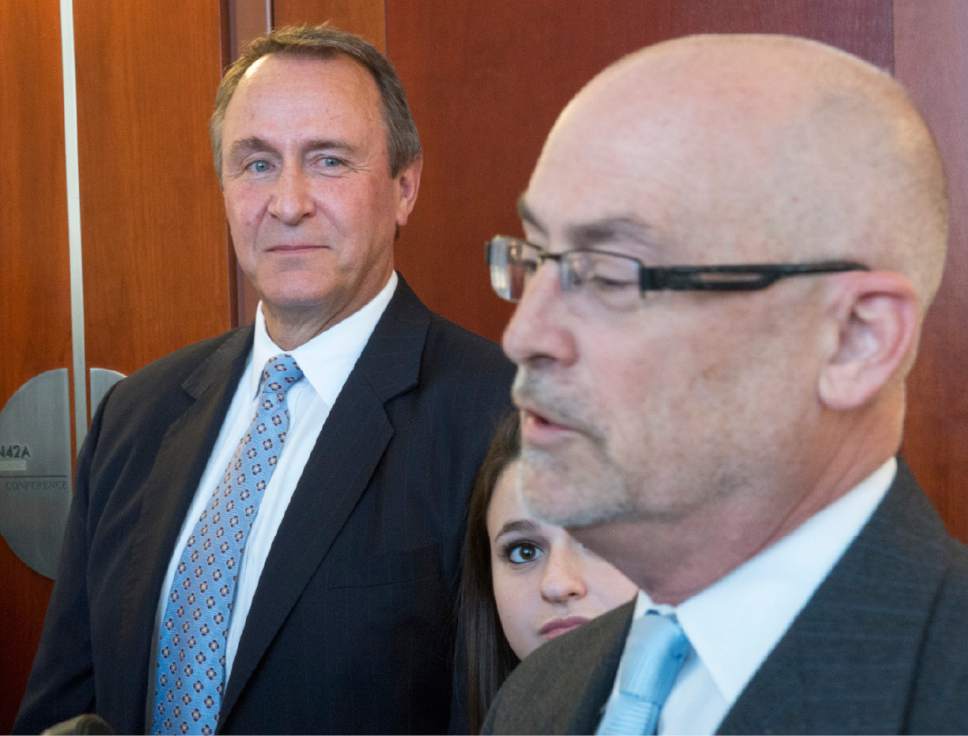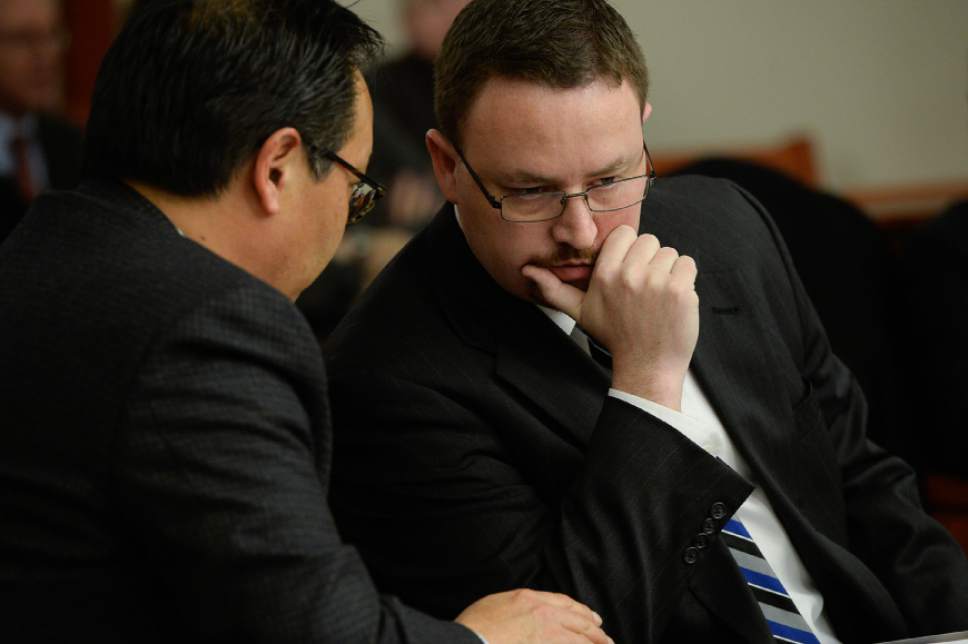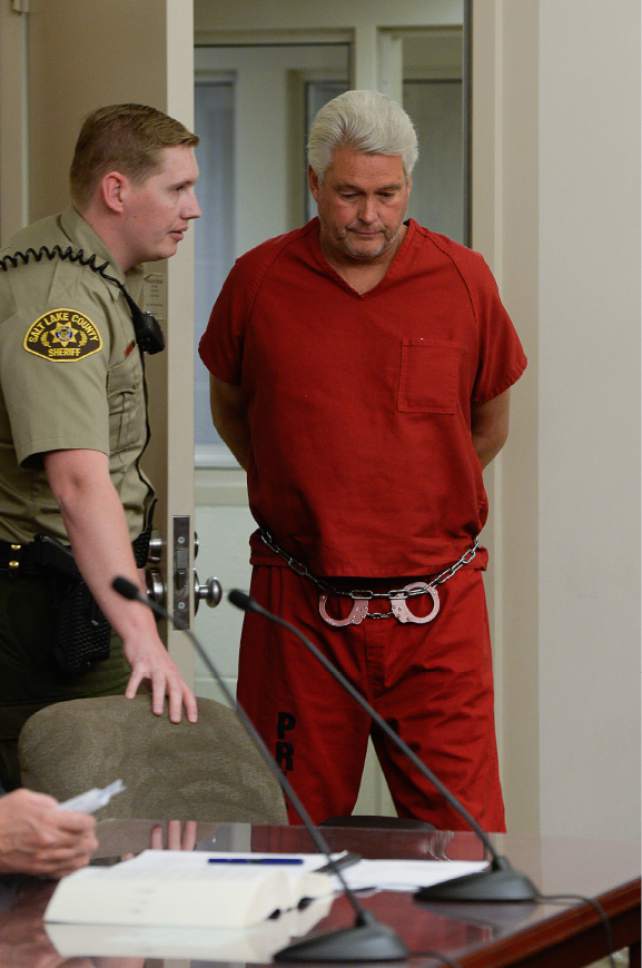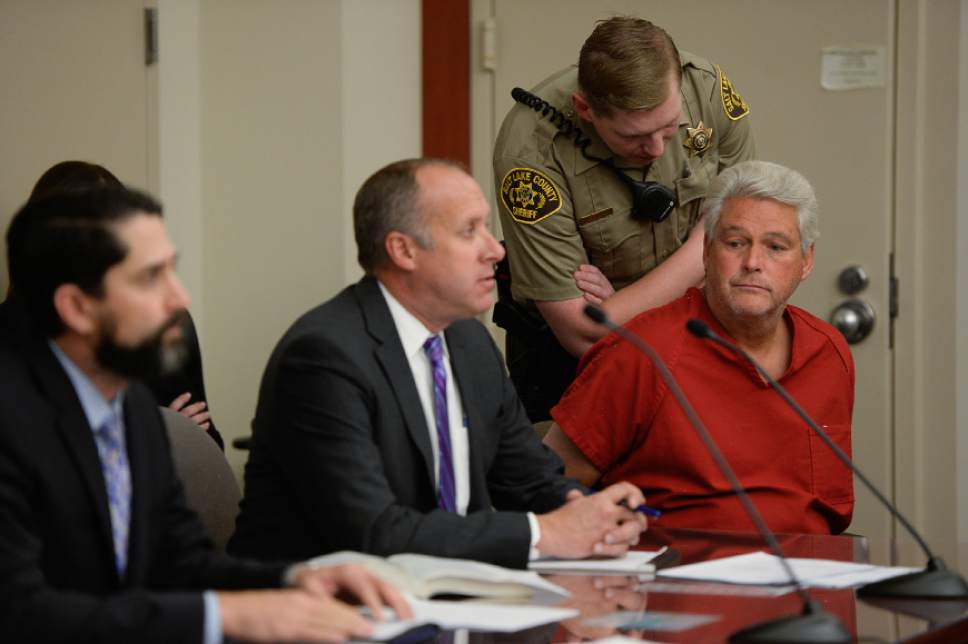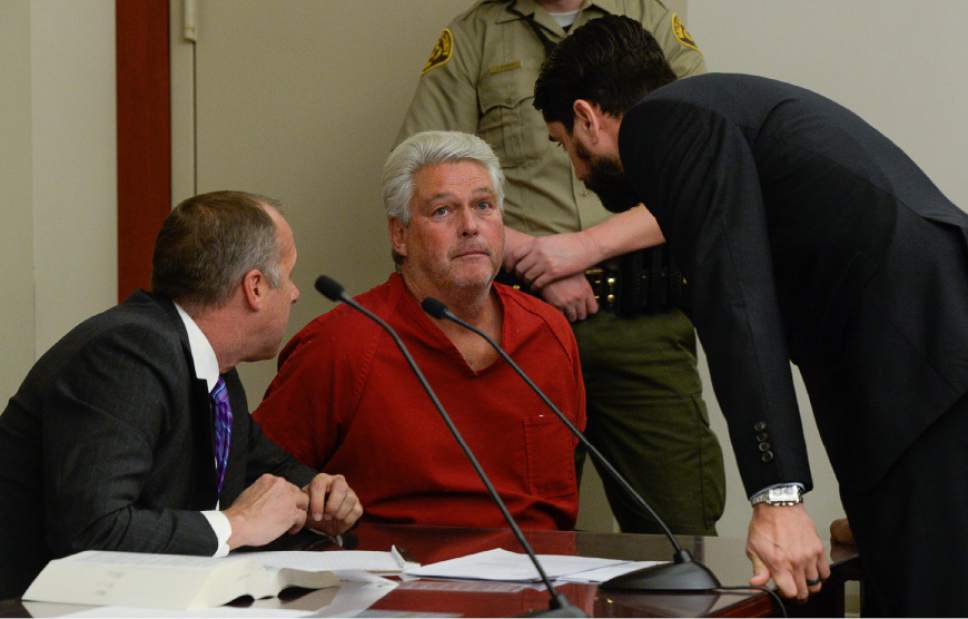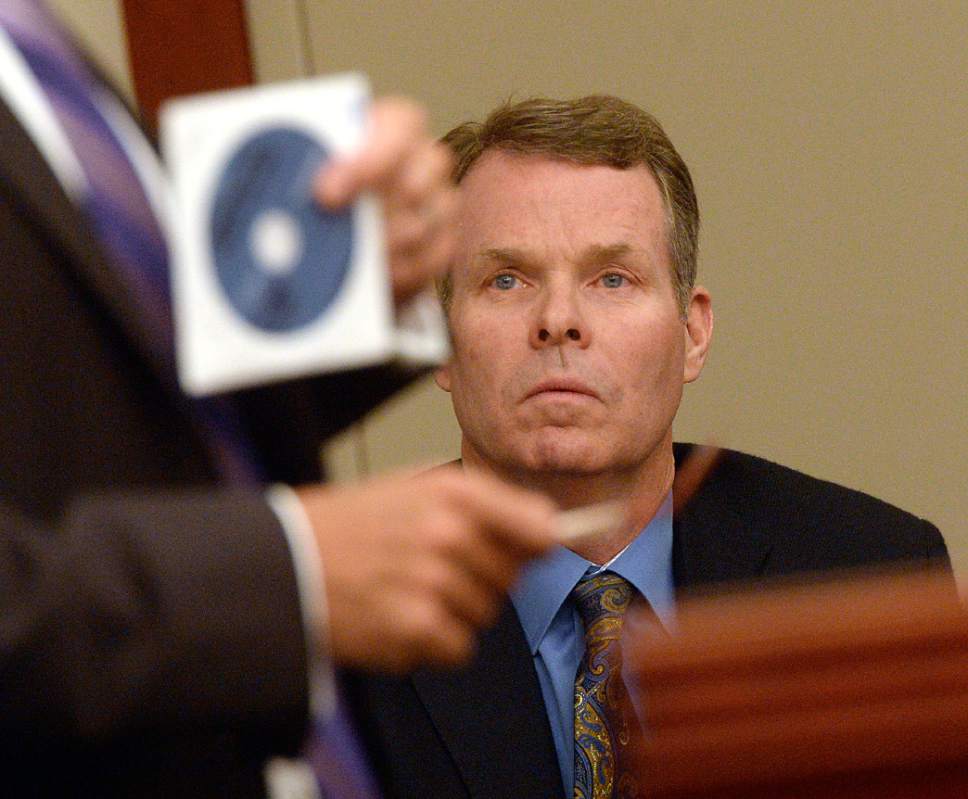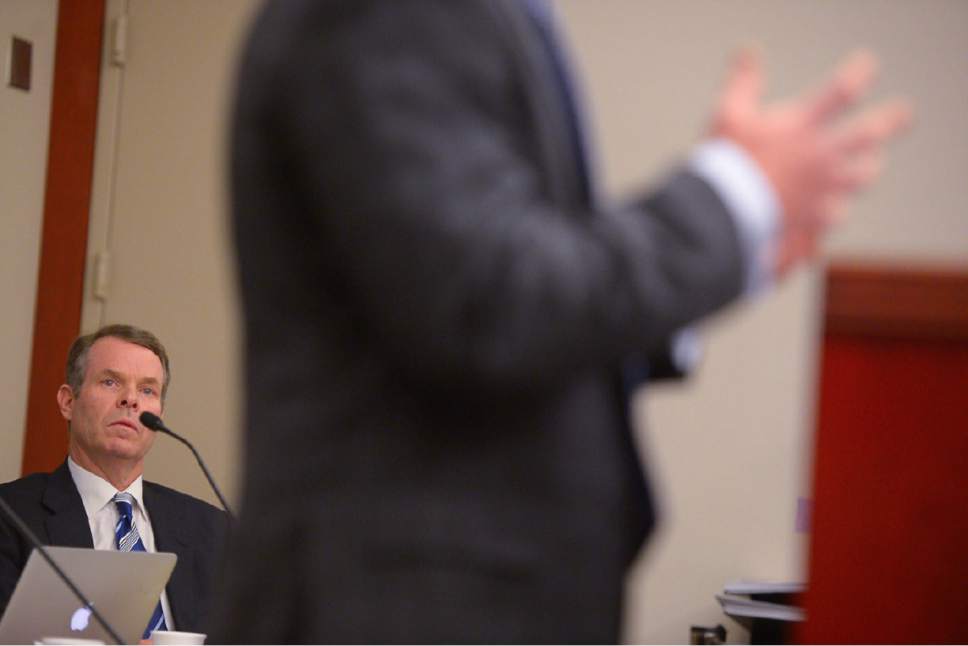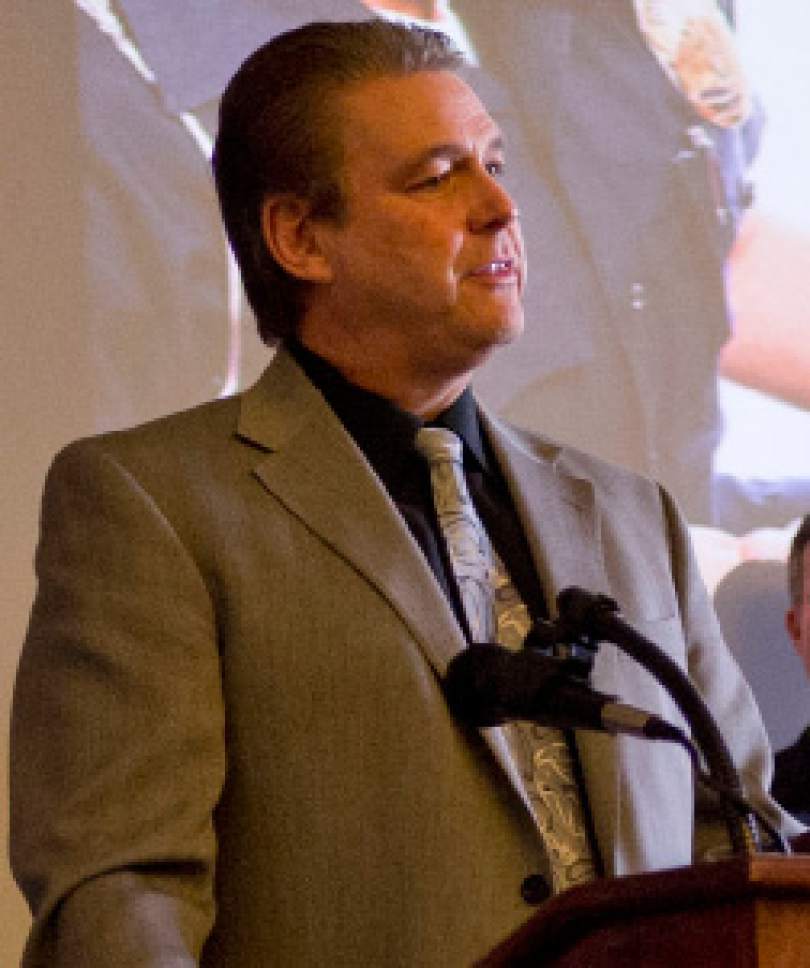This is an archived article that was published on sltrib.com in 2017, and information in the article may be outdated. It is provided only for personal research purposes and may not be reprinted.
A judge unsealed the affidavits Thursday used to justify the arrest of former Chief Deputy Utah Attorney General Kirk Torgensen, who is a witness in the upcoming public corruption trial of John Swallow.
The affidavits were unsealed by 3rd District Judge Elizabeth Hruby-Mills, hours after Torgensen's attorneys filed a petition asking her to do so.
"The deprivation of liberty by the government of any citizen's freedom is inherently a matter of significant public concern," Torgensen's attorneys wrote in their petition. "These interests are further heightened in this public corruption case because an innocent whistleblower from the attorney general's office was wrongfully arrested and has now served more time in jail than has the former attorney general whom the prosecution has accused of crimes."
The petition asserts that prosecutors violated the law when they failed to work out the terms for Torgensen's appearance at the trial before seeking his arrest, and that they expressed no factual basis for thinking he would not cooperate.
Releasing the documents would make it "publicly evident" whether prosecutors followed the law, Torgensen's attorneys wrote.
Torgensen, who now lives in Florida, was arrested Monday during a visit to Utah for his mother's funeral. He was released from the Salt Lake County jail Tuesday evening after an emergency court hearing.
Salt Lake County District Attorney Sim Gill has said his office sought to detain Torgensen because it feared he would not show up to testify at Swallow's trial, which begins Feb. 7.
The court record does not indicate whether Hruby-Mills asked prosecutors if they objected to the release of the affidavits.
The two material-witness affidavits, signed Monday by a deputy Salt Lake County district attorney and an investigator for the office, state that when served with a trial subpoena Sunday, Torgensen told the server he would be unavailable for the trial and would not attend because he had planned a February trip to Guatemala with his son.
Torgensen also said, "I don't know if I'm going to do that," when first asked to sign the subpoena; stated again he would be leaving the country Feb. 8; and refused to give his Florida address, according to three-page affidavit signed by district attorney investigator Lt. Cortney Nelson, who served Torgensen with the subpoena.
Torgensen also said he could not alter his travel plans unless "you want to pay me all the money I'm going to lose," Nelson wrote.
Deputy Salt Lake County District Attorney Samuel Sutton wrote in his two-page affidavit that Torgensen was an "essential" trial witness who "would likely flee from Utah" if released from custody with no bail or order from a court, and who "had nothing to lose by leaving the jurisdiction."
Torgensen and his attorneys tell a different story, saying he had offered to give sworn testimony before the trial or fly back from Guatemala to testify, provided the state would compensate him for his added expenses.
One of Torgensen's lawyers, Brett Tolman, filed a declaration by Assistant Utah Attorney General Scott Reed, with whom Torgensen was staying at the time of his arrest, in which Reed stated that Torgensen never told the server that he did not intend to appear to testify.
A longtime civil servant who worked for the state for nearly 20 years, Torgensen argues his reputation has been tarnished by the arrest, which was carried out by seven armed federal agents, according to the motion to unseal filed by his attorneys.
"His mug shot and photos of him in jail and shackles have been posted permanently in cyberspace and plastered throughout the local media," his lawyers wrote. "The witness has a compelling interest in the release of the affidavits in order to demonstrate to the public that the state violated Utah law and wrongfully arrested him."
Torgensen was the chief criminal division boss for Swallow and his immediate predecessor, former three-term Attorney General Mark Shurtleff. His testimony is expected to focus on an alleged pattern of illegal activity inside the office involving the relationships both bosses had with campaign donors and various business owners.


